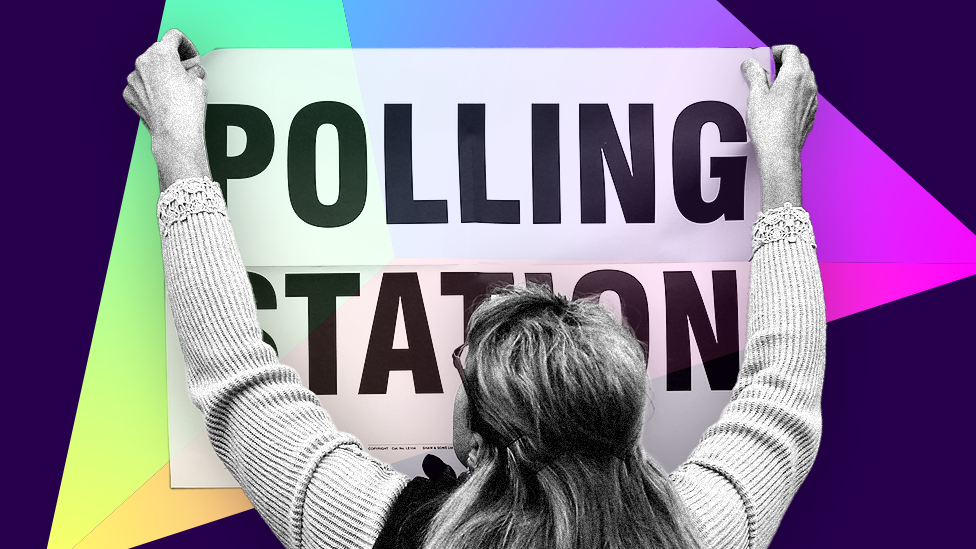Election views from the UK's second garden city
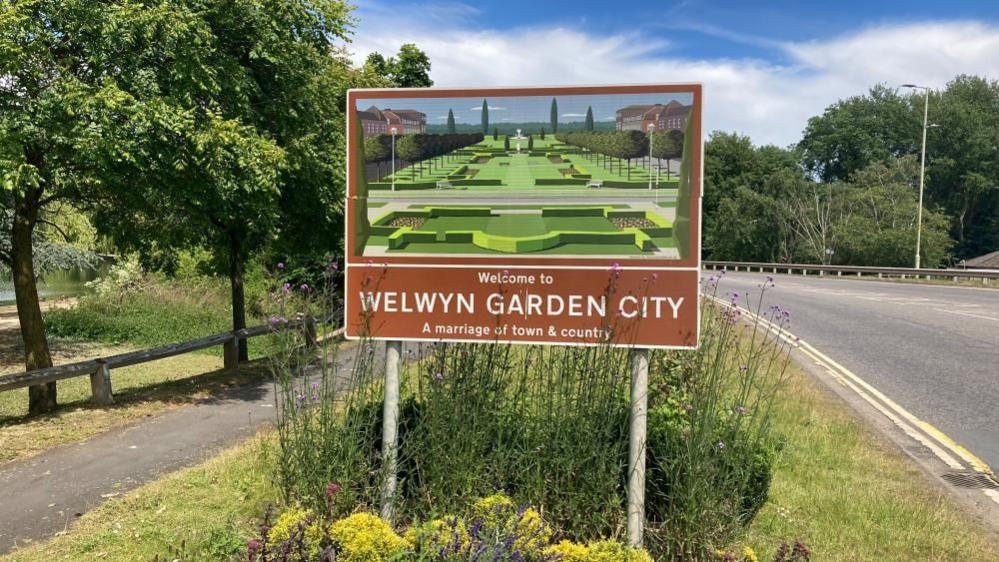
Welwyn Garden City was born in April 1920, when the company Second Garden City Limited became Welwyn Garden City Limited
- Published
Welwyn Garden City bills itself as a "marriage of town and country" on signs welcoming visitors. It is a reference to the design of the new town that was intended to offer the best of both worlds. Ahead of the general election on 4 July, what issues are important to voters in helping to make that possible?
The UK's second garden city is at the heart of the Welwyn Hatfield constituency.
Welwyn was developed by urban planner Sir Ebenezer Howard in the 1920s, who also created the first garden city in Letchworth, about 15 miles north.
It has many tree-lined streets laid out among parkland and the town centre was designed in a neo-Georgian style.
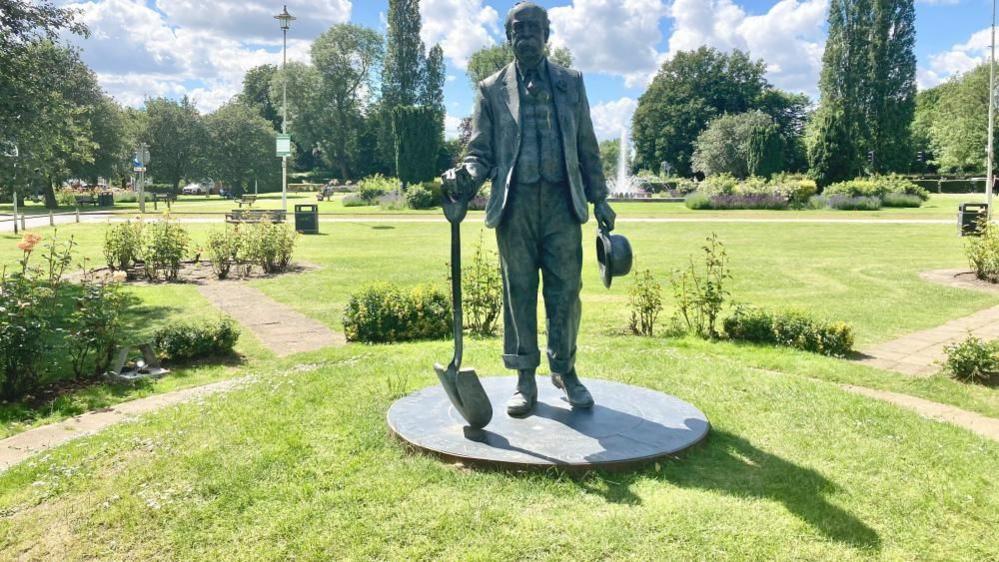
Sir Ebenezer Howard was responsible for establishing Welwyn Garden City in the 1920s
Since 2005, the seat has been held by Conservative Defence Secretary Grant Shapps - and he had a majority of nearly 11,000 at the 2019 general election.
There are five candidates standing this time round - Jack Aaron for Reform UK, Sarah Butcher for the Green Party, Andrew Lewin for Labour, John Munro for the Liberal Democrats, with Mr Shapps defending the seat.
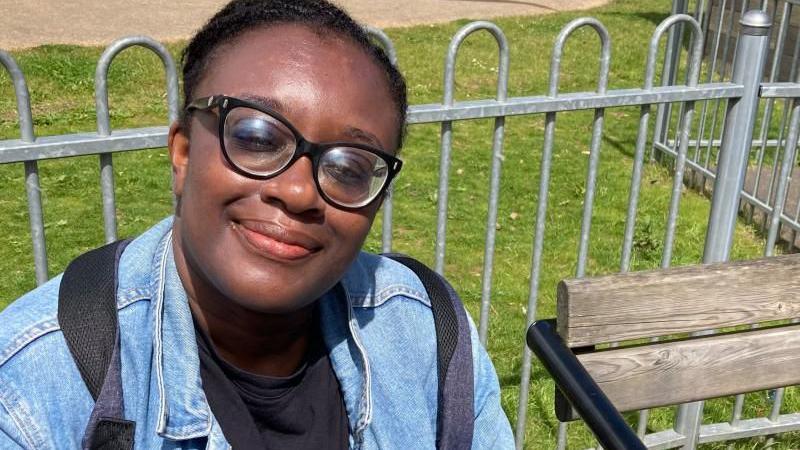
Catherine Yeboah is not sure who will get her vote on 4 July
More than a century on from its inception, people in Welywn said the price of property was a key issue.
Catherine Yeboah, 40, lives with her partner and son in Welwyn, and works in the London Underground control room.
She doubts whether the family will own a home in the near future.
"We are renting at the moment and I can't see us buying a place for at least another five years," says Miss Yeboah.
"And the problem is a lot of people my age are being priced out of the property ladder and it shouldn't be like that."
Royal favourite garden city celebrates centenary
- Published1 January 2020
Miss Yeboah said more homeless people were being seen in the centre of Welwyn.
"The town centre for me in Welwyn Garden City is dying," she said.
"I've been here six years. I think the pandemic didn't help."
She believes homelessness was an issue political parties should address.
"There are a lot of empty properties but you have got people sleeping on the streets," she said.
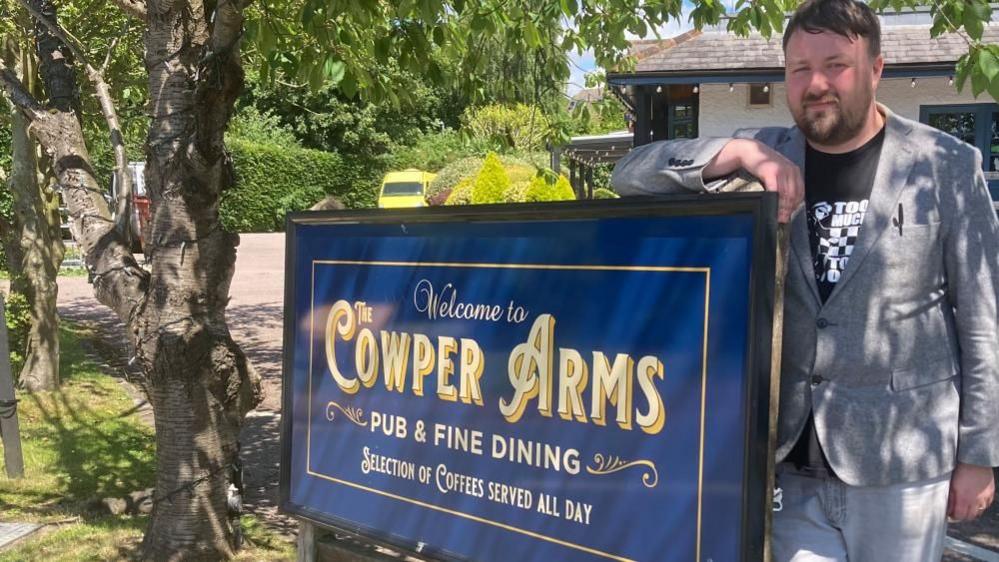
Dan Vine, manager of the Cowper Arms, has moved to Letchworth
Dan Vine, 34, manager of the Cowper Arms, in Digswell, near Welwyn, which dates back to the Victorian era, said he had left Welwyn and now commuted.
He said the price of property in Welwyn was a "major issue".
"I moved to Letchworth because I can't afford to live in Welwyn," explained Mr Vine, who also has a family.
"I was living in a two-bedroom flat here and for only a little bit more than that, moving out to Letchworth, I have got a three-bedroomed house with a garden."
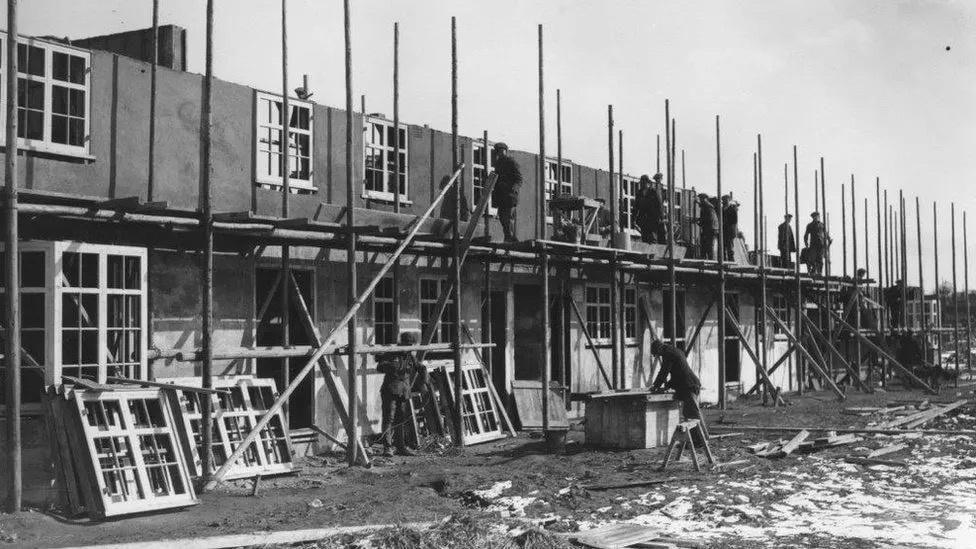
Welwyn Garden City celebrated its centenary in 2020 - this photograph shows houses being built in there in 1925
Mr Vine also raised issues about support for pubs and restaurants who were "feeling the pinch".
Although his business is "doing OK", he added: "The costs of everything are sort of spiralling upwards and obviously we have to pass on some of that to the customer.
"I think as a smaller business we could do with having a bit more support and kind of a bit less taxation whacked on everything the whole time."
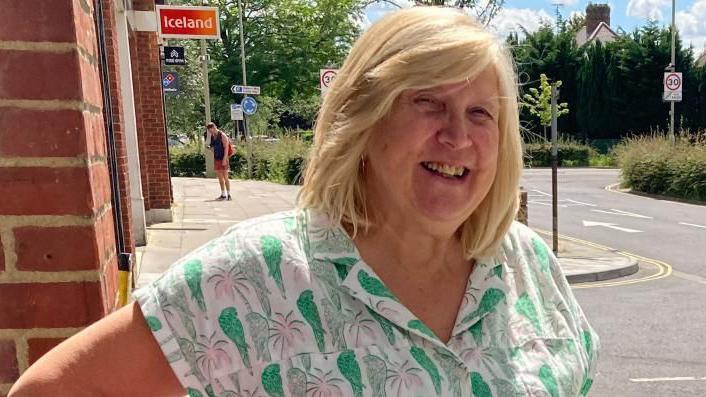
Charity shop manager Sue Thackeray is concerned about the decline of Welwyn's town centre
Charity shop manager Sue Thackeray, 67, who lives and works in Welwyn, was also concerned about about the decline of the town centre.
Mrs Thackeray said big stores had left and added: "There's nothing to encourage to come in now.
"We are not getting the footfall.
"We've got a lot of charity shops - but not much else."
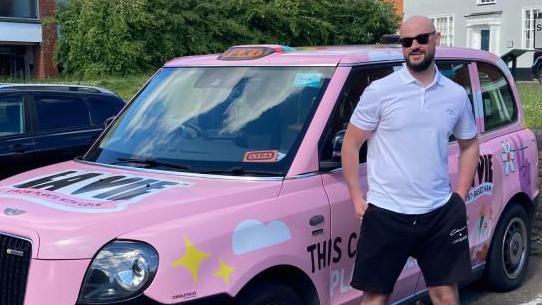
Taxi driver Matthew Murphy said he had faced increased costs
Taxi driver Matthew Murphy, 32, who lives in Old Hatfield, said the cost of working created a number of difficulties.
"The big problem is the cost of the vehicle," he said.
"To buy outright is about £80,000. Then there's the running costs.
"My cab is hybrid. Petrol goes up - then goes down a little but charging is also expensive."
He added: "People have also got less money so a taxi is often one of the first things they do without."
Mr Murphy said more generally he had concerns about crime and immigration.

Follow Beds, Herts and Bucks news on Facebook, external, Instagram, external and X, external. Got a story? Email eastofenglandnews@bbc.co.uk, external or WhatsApp us on 0800 169 1830
- Published3 May 2024
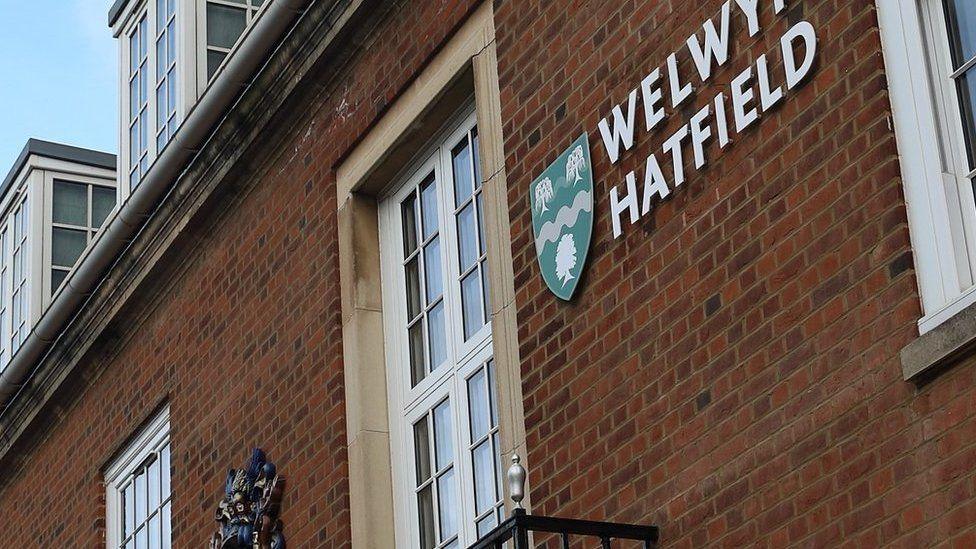
- Published14 April 2021
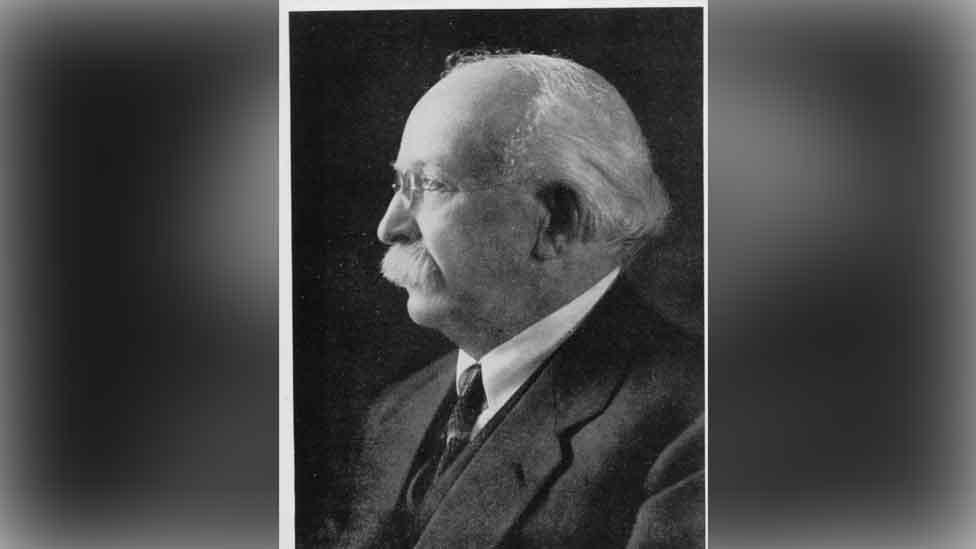
- Published1 January 2020
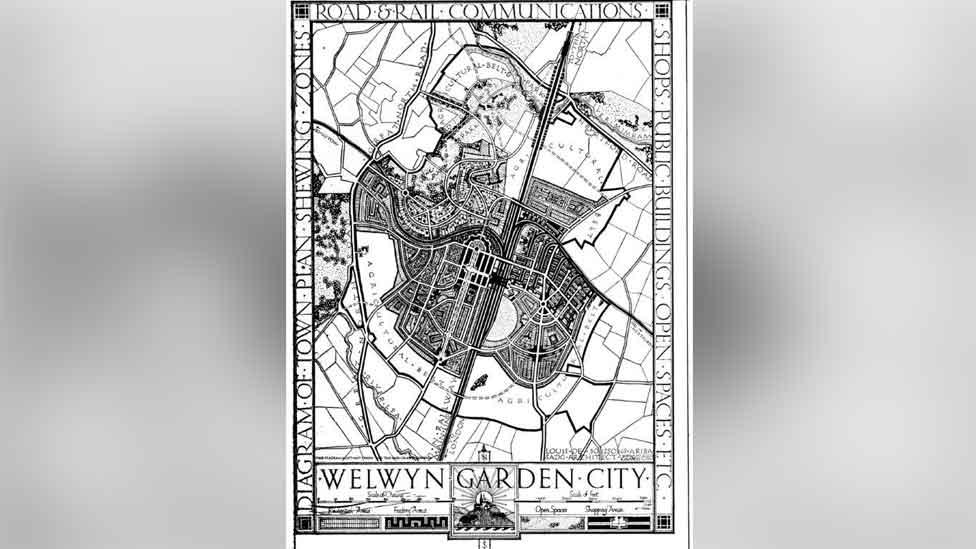
Related Internet Links
- Published4 July 2024
